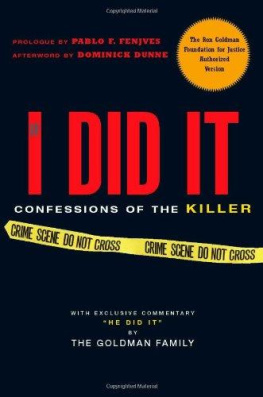I have often been quoted as saying that hockey succeeds in spite of itself. Its greatest attribute isnt the speed or athletic ability required to play the game. Nor is it the sounds of the game or its physical nature. Hockey succeeds because of the people in and around the game and the stories they tell.
This book is a great example of that.
I first heard of Rob Simpson as the play-by-play voice of the Boardwalk Bullies of the East Coast Hockey League (ECHL). They were a short-lived franchise that won the league championship only to disappear almost as quickly as they appeared. The team could only wish to have the same shelf life and passion for hockey as Rob Simpson. You see, Simpson isnt that run-of-the-mill guy who works on the fringes of the game (like the rest of us in the media). He is a passionate survivor. He sees things in the game that many do not. He is able to dissect why people play this great game at any level, from peewee to pro, from Chattanooga to China. He sees and respects the game at any and every level.
Over the last two decades, I have hired Rob for at least three jobs. It was never boring with him around. Make no mistake about it, Rob can be a pain in the ass. He is relentless in his pursuit of what makes hockey so important to so many people. He believes in the game so much that he expects others to believe in and understand it as well. It is a blessing and a curse.
What is endearing about Rob is his ability to find a story in the minutiae of sport or, rather, those people in sport. And as you will read, his love of competition and athletes goes beyond hockey: he has an innate ability to look beyond the competition to find the humorous, the eccentric, even the emotional side to a competitors story. Thats what makes Rob what he is: an excellent storyteller.
With that in mind, sit back, relax, and enjoy the ride. And know that Rob Simpson makes every journey well worth the time.
Running with the children the other morning... Ill be touched and remember forever.
Steve Montador, a few days after visiting
a school in the Serengeti, June 2007
Steve Montador took a lot of punches. He wasnt the most successful hockey fighter, but he was always a willing participant. Willing to stick up for any teammate; willing to drop the mitts at the appropriate time. He would best be considered a middleweight who often fought heavyweight enforcers. He fought stars, shit disturbers, and grinders. According to hockeyfights.com, in his career, Monty fought fifty-one different NHLers, nine of them multiple times, and, based on the visual evidence, lost the majority of his fights.
But whether he won or lost at fisticuffs meant little. A hard-working defenceman, he played the game the right way and was cherished by any man wearing the same sweater.
He was also freaking hilarious.
The longest, hardest sustained laughter I have experienced as an adult occurred while listening to Montador tell a story about laser hair removal in a sensitive area of his body and the interactions with the middle-aged woman who was removing it. We were sitting at a remote resort restaurant on the shores of the Indian Ocean, north of Dar es Salaam, Tanzania, eating dinner with Andrew Ference, his former teammate in Calgary and at the time a Boston Bruins defenceman; as well as Mark Brender, then Canadian Deputy Director of the humanitarian sports organization Right To Play; Patrick Gamere, our videographer from New England Sports Network (NESN); and our local cab driver, whom we invited to sit and join us despite the fact he spoke only Swahili.
The cabbie didnt need to speak English to know that Montys story was outrageously funny. Simply watching Montys gestures and the rest of us doubled over, the cabbie was laughing, eyes watering, as hard as the rest of us.
It was one of the many times the man had us in stitches during a trip that had its fair share of very serious moments. Like when the machine guntoting Tanzanian cop decided whether or not he was going to let our van pass through his checkpoint; when we almost stepped on not one but two very deadly eastern green mamba snakes in the Serengeti; when some remote villagers may have taken exception to us not buying any of their handmade goods after welcoming us like kings; and when we regularly realized just how amazing the local children were, despite the fact they were dealing with crushing poverty, AIDS, and abuse.
Monty was there on a mission with Ference to learn first-hand about the work of Right To Play in East Africa and to pass that knowledge and experience along to potential supporters back home. I was helping that effort by producing and hosting an hour-long documentary on their almost week-long adventure for NHL Network TV and also a couple of half-hour versions for NESN.
They were long days full of smiles, enlightenment, and inspiration while playing games with Tanzanian children, followed by deeper reflection on a nightly basis. The reality of the kids living conditions and lifestyle was humbling and confounding.
Montador had committed to the trip just a week before it began, after another NHL hockey player, Georges Laraque, then of the Penguins, backed out due to a summer training injury. On day two, Andrew described his appreciation of Montys effort.
Its pretty cool that a guy can come on a big trip to Africa with six days notice. There arent too many guys around who would do that but... let alone come with the enthusiasm and understanding about what Right To Play is all about. He really is just opening his arms to what were seeing here, and the culture here, and what were all about.
Right To Play uses games and sports in places like sub-Saharan Africa to teach kids life lessons they normally wouldnt be exposed to. Not only do children show up to school in greater numbers during these RTP activity days, so do more teachers. Among other things, the activities teach the kids about avoiding malaria, protecting themselves against HIV, and treating others, especially girls and women in this otherwise very patriarchal landscape, with respect.

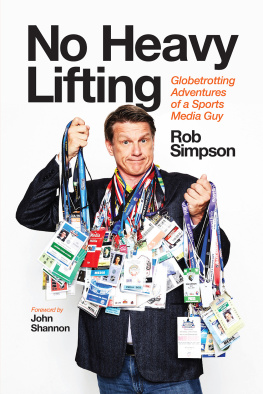
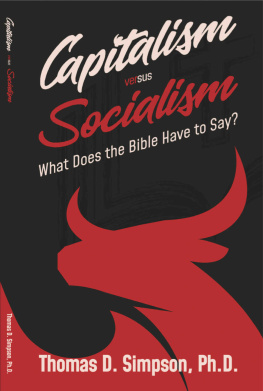
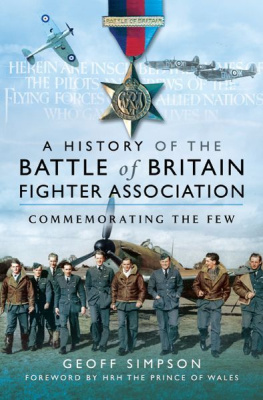


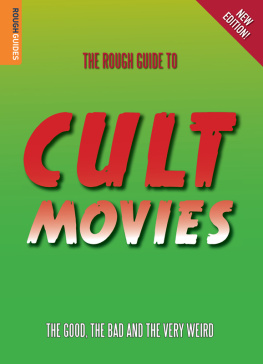



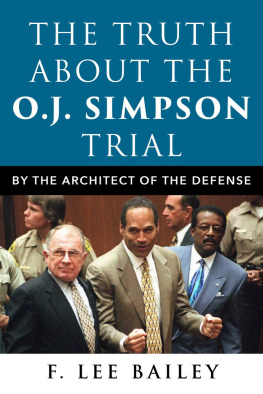
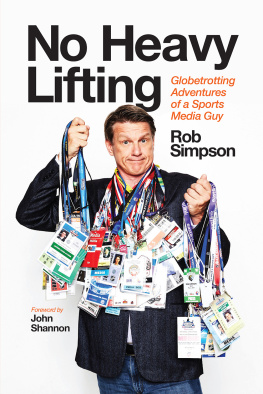


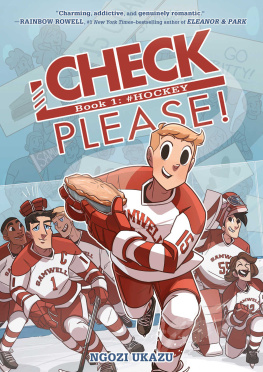
![Kyle Simpson [Kyle Simpson] - You Don’t Know JS: Up & Going](/uploads/posts/book/121420/thumbs/kyle-simpson-kyle-simpson-you-don-t-know-js.jpg)


